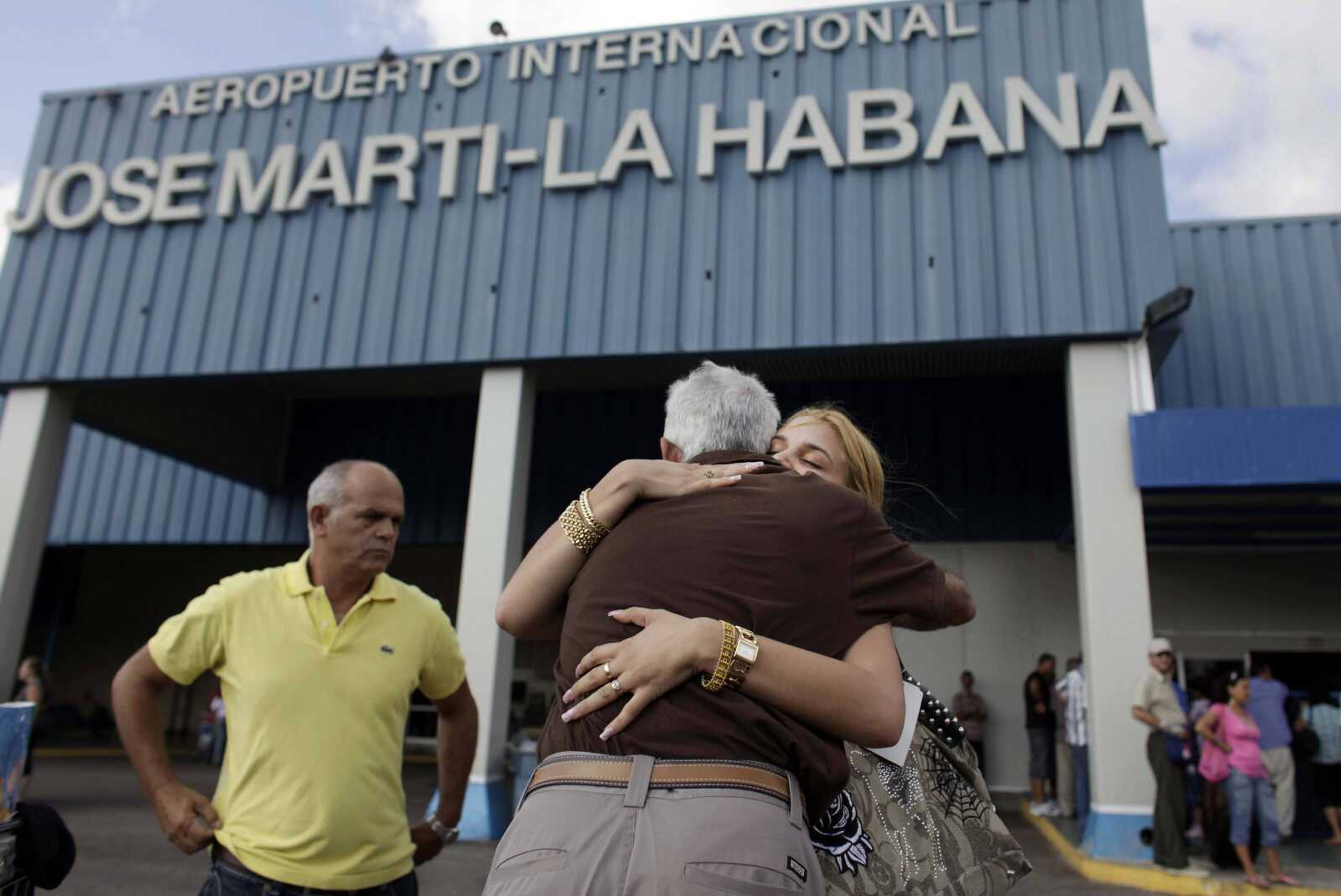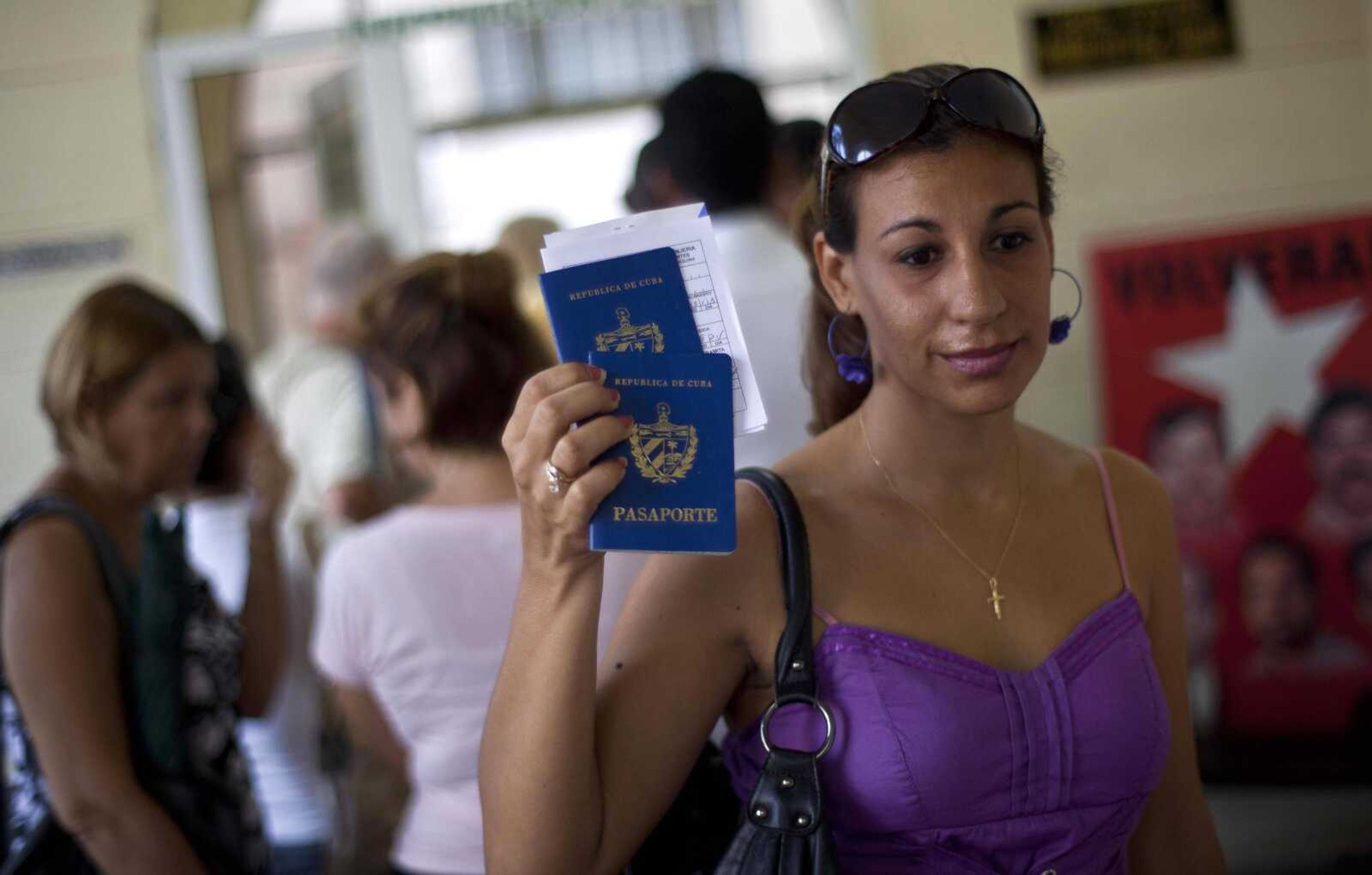HAVANA -- The Cuban government announced Tuesday that it will eliminate a half-century-old restriction that requires citizens to get an exit visa to leave the country.
The decree that takes effect Jan. 14 will eliminate a much-loathed bureaucratic procedure that has kept many Cubans from traveling or moving abroad.
"These measures are truly substantial and profound," said Col. Lamberto Fraga, Cuba's deputy chief of immigration, at a morning news conference. "What we are doing is not just cosmetic."
Under the measure announced in the Communist Party daily Granma, islanders will only have to show their passport and a visa from the country they are traveling to.
It is the most significant advance this year in President Raul Castro's five-year plan of reforms that has already seen the legalization of home and car sales and a big increase in the number of Cubans owning private businesses.

Migration is a highly politicized issue in Cuba and beyond its borders.
Under the "wet foot, dry foot" policy, the United States allows nearly all Cubans who reach its territory to remain. Granma published an editorial blaming the travel restrictions imposed in 1961 on U.S. attempts to topple the island's government, plant spies and recruit its best-educated citizens.
"It is because of this that any analysis of Cuba's problematic migration inevitably passes through the policy of hostility that the U.S. government has developed against the country for more than 50 years," the editorial said.
It assured Cubans that the government recognizes their right to travel abroad and said the new measure is part of "an irreversible process of normalization of relations between emigrants and their homeland."
The decree still imposes limits on travel by many Cubans. People cannot obtain a passport or travel abroad without permission if they face criminal charges, if the trip affects national security or if their departure would affect efforts to keep qualified labor in the country.
Doctors, scientists, members of the military and others considered valuable parts of society currently face restrictions on travel to combat brain drain.
The Cuban government's decision to eliminate exit visas won't mean that Cubans can just get on a plane to the United States.
Kathleen Campbell Walker, an immigration lawyer in El Paso, Texas, said Cubans who fly to the United States are still required to get a State Department-issued visa. Homeland Security officials who review passenger lists for U.S.-bound flights are likely to order airlines to deny boarding to anyone who doesn't have that permission.
Cubans who do make it to the U.S., regardless of whether they have a visa, are generally admitted to the country.
"Our own visa requirements remain unchanged," State Department spokeswoman Victoria Nuland said Tuesday.
Connect with the Southeast Missourian Newsroom:
For corrections to this story or other insights for the editor, click here. To submit a letter to the editor, click here. To learn about the Southeast Missourian’s AI Policy, click here.







